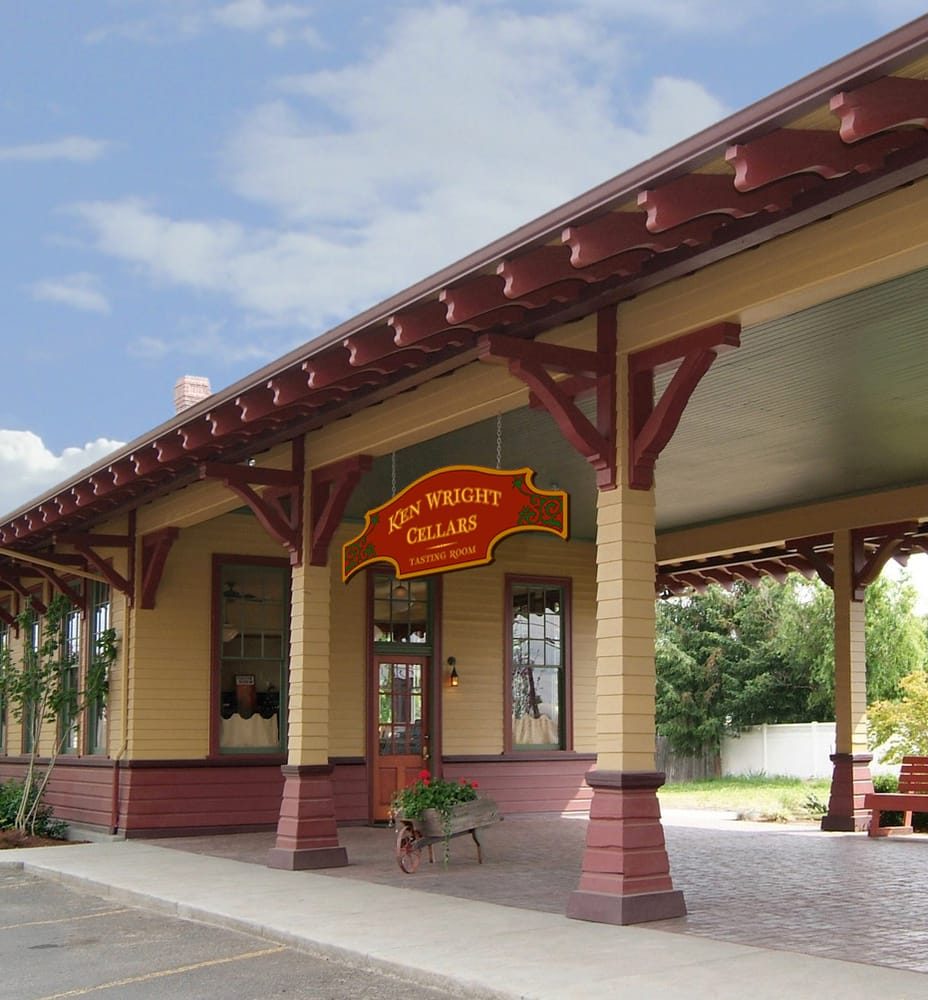Keeping Carlton Original
Ken Wright Cellars Tasting Room, previously a train depot that has been refurbushed.
While Carlton and the rest of the Willamette Valley is known for their world-famous wine, it hasn’t always been this way. While Carlton was originally a logging town, it’s potential for winemakers was quickly discovered, and now, wine seems to be the life raft the town needed.
At the start of the 20th century, Carlton was known as the logging center of the state. This brought in many other businesses, such as butcher shops, stores, hotels and even a movie theater. Life in Carlton flourished until the 1960’s, when the Carlton Lake was emptied for the final time, and the last of the sawmills closed down. As the primary source of income for many residents, the end of the lumber industry in Carlton dealt a major blow to the city.
However, not all was lost. As the Wine Renaissance waged throughout the world in the 1960’s, many winemakers migrated to the Pacific Northwest, where the climate was perfect for growing many French grapes. The climate in the Willamette Valley specifically was found to be an almost perfect match to that of Burgundy, France, where the world’s most famous pinot noirs are grown. “The farmers had given up on the hillsides in the Valley. But the shallow topsoil is perfect for growing pinot noir,” local winemaker Ken Wright said.
It is very difficult to find a local who can truly say they have never heard of Ken Wright. With his name plastered on the front of many of the buildings in town, he has become somewhat of a local celebrity. Moving his craft to Mcminnville in 1986, he didn’t begin his revitalization of Carlton until 1994, when he bought and converted a local barn and train depot into his winery and tasting room, respectively.
However, Wright’s plans were not originally to transform Carlton into the well-pronounced town it is today. He said, “It just happened with time… It was never about the wine. It was about preserving the originality of the town.” It seems that the locals agree with him, as they’re happy with the many projects meant to refurbish old buildings important to the city’s history.
Like any time change happens, there are those that oppose it. “Some people just don’t like change, simply because it’s different,” said Wright. This change, whether appreciated or not, has definitely helped the state. Enotourism, or wine-related tourism, has brought in an estimated $207.5 million in taxes in 2013 alone, not counting wine sales. So while some may see Ken Wright’s work in the community as a takeover of the local scene, he’s simply doing his best to “keep Carlton original.”







